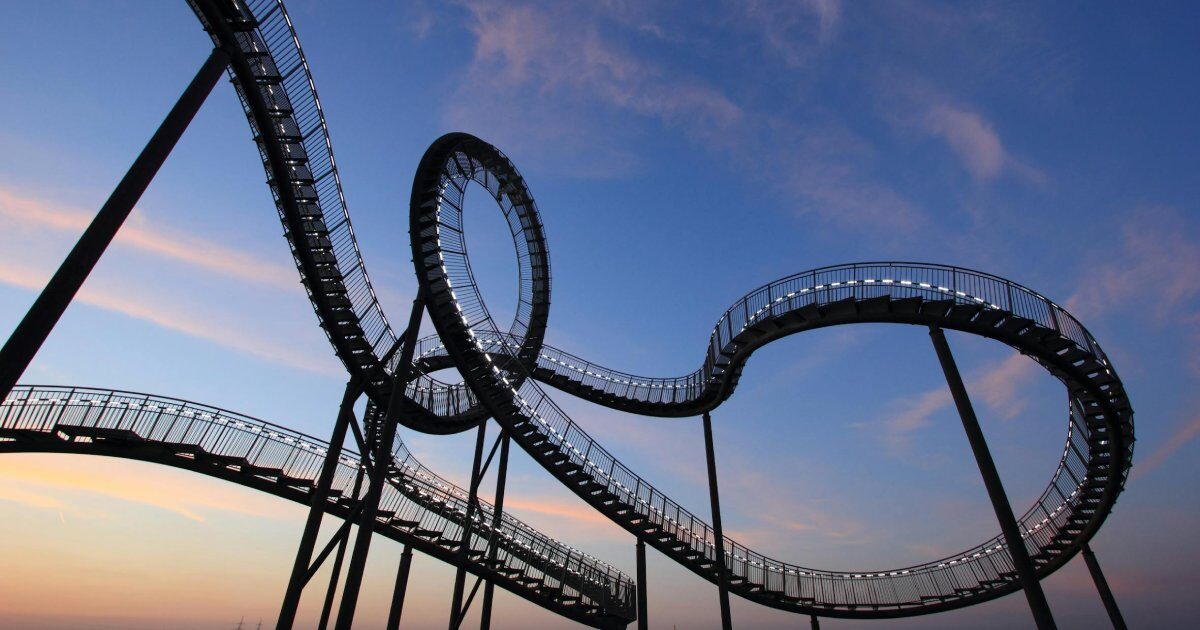Six Flags, Cedar Fair Start a New Licensing Chapter

By Mark Seavy
As Six Flags Entertainment opens its long-running Halloween Fright Fest event with a heavy emphasis on licensed IPs, many in the industry are curious to see if that focus will translate to the company’s post-merger strategy.
Six Flags and Cedar Fair merged in July. The combined company, which is operating under the name Six Flags Entertainment Corporation, is still working on integrating operations. Part of that process will be deciding what role licensed IPs will play at its parks.
Six Flags—which has licensing agreements with Warner Bros., DC Comics, and a string of horror properties for Fright Fest, including The Conjuring, Stranger Things, Saw, Texas Chainsaw Massacre, and more—has long carried a heavy emphasis on licensed IP.
“In totality, the company believes in IP and whether it should be long-term or something that comes in and out of the parks is something we are trying to determine,” said Edithann Ramey, Chief Marketing Office at Six Flags. “We are very much in the [learning] mode but understand there is power in the IPs.”
Cedar Fair, meanwhile, has for the most part solely focused on Peanuts, including recent plans to add new rides (Snoopy’s Racing Railway and Charlie Brown’s River Raft Blast) in 2025 at its Carowinds Park in Charlotte, NC. It also renovated and reopened Camp Snoopy at the Knott’s Berry Farm Park in Buena Vista, CA. and at Kings Island in Mason, OH.
That difference in IP strategies can be seen in the companies’ previous approaches to Halloween.
Cedar Fair launched the Knotts Scary Park event in 1973 and was among the first entertainment parks to mark Halloween with a three-day event. It has typically placed a heavy emphasis on the internal development of IP and content.
Six Flags, meanwhile, launched Fright Nights in 1986 at AstroWorld in Houston, TX before renaming the event Fright Fest and adding The Nightmare on Elm Street film’s Freddy Krueger character as the “entertainment chairman” at its park in Chicago, IL two years later.
While Fright Fest has varied between owned and licensed IPs over the years, Six Flags doubled down on beloved brands in 2023. It introduced Fright Fest Extreme in adding The Conjuring and Stranger Things attractions as part of 11 haunted houses and nine “scare zones” at its parks in Jackson Township, NJ and Los Angeles, CA. The Extreme version was added this year in varying degrees to parks in San Antonio and Dallas, TX; Chicago, IL; Atlanta, GA; and St. Louis, MO.
“When the curtain was raised [on the combined company], the question was does it make sense to blend [the companies’ IP strategies]?” Ramey said. “If we see that it is working and there is a lot of value in increased attendance and revenue on their [Cedar Fair] side, maybe we blend the IP strategies. We are still using that filter to determine if it delivers big results. I think we would blend if it were a big success for the brand.”
In addition to potentially blending IP strategies, the companies are also making decisions about branding for the parks.
Six Flags will remain both the corporate and parks name. But on the Cedar Fair side, it’s a question of whether its parks are potentially renamed something like Knott’s Berry Farm by Six Flags Entertainment or some variation of it. The Cedar Fair parks didn’t carry the corporate name but rather Knott’s Berry Farm, Dorney Park, Cedar Point, and others.
The combined company has 42 theme and water parks, with the companies also operating nine resort properties. Six Flags has long sought to expand internationally but plans for Zhejiang and Chongqing, China were scrapped due to the global pandemic. It also proposed and later terminated similar agreements in Dubai in 2010 and again 2019. Its park in Qiddiya, Saudi Arabia, first proposed in 2016 and being developed by the Saudi Arabia Public Investment Fund, is slated to open in 2025. Outside the U.S., Cedar Fair operated the Wonderland theme park in Ontario, Canada, which now falls under the combined company.
“It’s probably the natural course of things [that the combined company is named Six Flags],” said George Wade, President of the consulting firm Bay Laural Advisors. “Everyone knows Six Flags, but you have to be in the industry to understand Cedar Fair and the scale they have.”
The combined company, along with Premier Parks and Merlin Entertainments, will be among the largest regional theme park owners competing against both small operators and giants like Universal and Disney.
“There will always be a place for these regional parks because they offer something small operators can’t,” a former Six Flags executive said. “In the case of Disney and Universal, they have something that is different from regional parks. Good management can overcome market forces for a period and the key will be to watch what strategies the new management team will be able to employ.”




